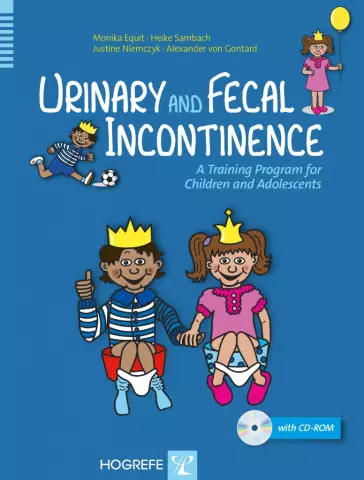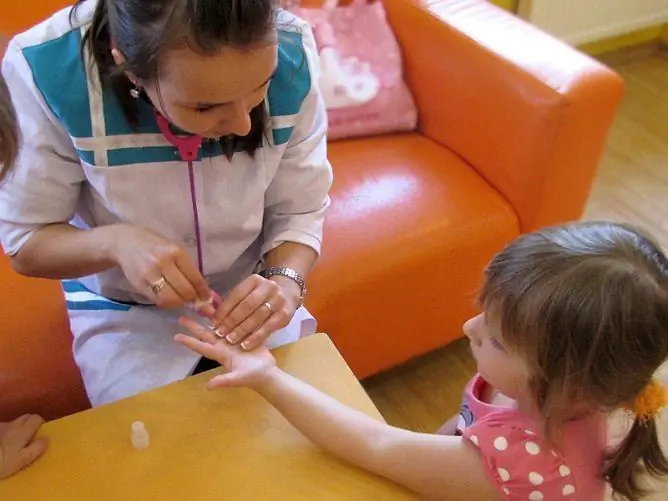- Author Rachel Wainwright wainwright@abchealthonline.com.
- Public 2023-12-15 07:39.
- Last modified 2025-11-02 20:14.
Urinary incontinence in children

It has been reliably established that urinary incontinence in children is much more common than discussed, due to the sensitivity of the problem. This pathology is often of a medical nature and requires a responsible approach from parents. To help your child overcome it, you should put aside false awkwardness and work closely with your doctor.
Causes of urinary incontinence in children
A systematic approach to the issue requires understanding - primary or secondary enuresis takes place in this particular case. Depending on the nature of the situation, one or another approach to its resolution is determined.
Primary urinary incontinence is most common in children. A family history may be required to determine the cause. Presumably, primary enuresis occurs in children whose parents suffered from a similar problem in childhood.
In some cases, primary bedwetting in children may be due to a certain delay in the development of the nervous system. So when the bladder is full, the sleeping child's brain should signal the bladder to prevent emptying. With a delay in the development of the central nervous system, such a signal may be insufficient.
Secondary urinary incontinence in children is much less common, and the causes of its occurrence are, as a rule, stress or psychological trauma.
Modern approach to the treatment of urinary incontinence in children
Qualified therapy is based on quality diagnosis. To clarify the diagnosis, as a rule, it is required
- detailed history,
- Analysis of urine,
- sleep research (sleep monitoring).

If a child suffers from chronic constipation, his bladder may be under constant pressure from the intestines, causing involuntary urination. Having urologic infections or elevated levels of glucose in the urine can also cause urinary incontinence in children. Apnea, a short-term respiratory arrest, often registered in the sleep laboratory, is the cause of bedwetting in children.
Also, average bedwetting in children can be caused by a severe nervous shock. In such cases, the help of a qualified child psychologist is needed.
In the arsenal of modern medicine for the treatment of urinary incontinence in children, there are special moisture sensors. They are designed to help solve the problem of bedwetting in children. At the same time, traditional methods - such as waking up the child three hours after falling asleep and offering to go to the toilet - have not lost their effectiveness.
If during the day the child receives a sufficient amount of fluids, then it is better to limit the amount of drinks in the evening. It is also worth consulting with your doctor about the advisability of prescribing special medications that reduce nighttime urine production. It is strongly not recommended to scold children for bedwetting. On the contrary, the child should be encouraged and supported, instilled in him confidence in the victory over the problem.
Daytime urinary incontinence in children is not a pathology only up to the age of 4 years in girls and up to 5 years in boys. In a more adult period, it may indicate the presence of asymptomatic epilepsy. The situation requires consultation with a pediatric epileptologist, who must prescribe an encephalogram of the brain.
Daytime urinary incontinence in children can also develop during early school age. During this period, the urination reflex is still not stable enough. If the teacher prohibits pupils from going to the toilet during class as needed, the receptors in the bladder become desensitized, which can also cause urinary incontinence in children. This issue should definitely be discussed with the teacher in advance.
YouTube video related to the article:
The information is generalized and provided for informational purposes only. At the first sign of illness, see your doctor. Self-medication is hazardous to health!






